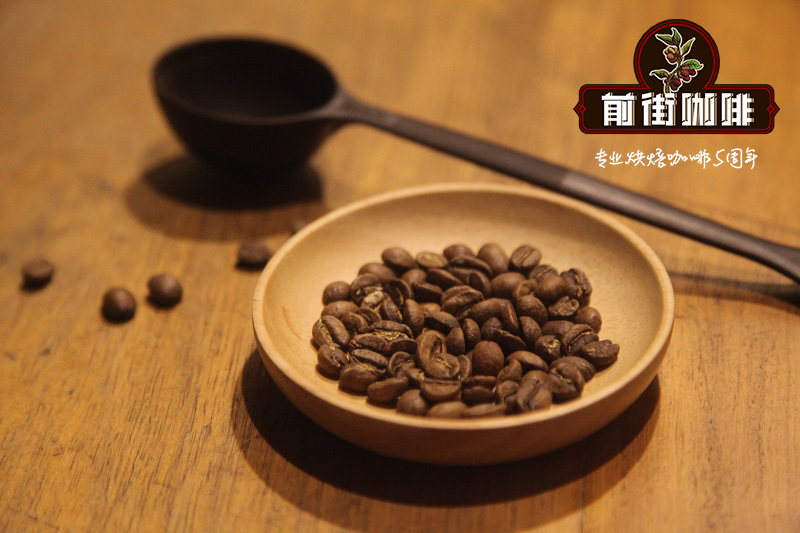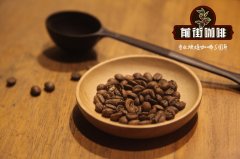Brazil coffee cultivation industry belongs to what agriculture Brazil coffee tree cultivation of natural factors Introduction

Professional coffee knowledge exchange more coffee bean information please follow the coffee workshop (Wechat official account cafe_style)
Qianjie-introduction to coffee cultivation in Brazil
When we taste a cup of coffee, you will like her or remember her, it must be because she has some unique taste that attracts you, maybe it's its fresh floral acidity, such as Yegafine, maybe it's its rich depth, like Mantenin; or like monsoon coffee, you can smell it and know who it is. But there is a kind of coffee, even if you have encountered it many times, but its taste is difficult to impress you, but you can not ignore its existence, it is Brazilian coffee.
Brazil is known as the kingdom of coffee, and it is also the largest coffee producer and exporter in the world. Coffee production accounts for more than 30% of the world's coffee production, and all coffee produced here. Brazil is also the second largest coffee consumer in the world after the United States. There are about 300000 farmers engaged in coffee farming here, which carries the important task of Brazil's economic development and affects the development of coffee in the world. You know, the vast majority of instant coffee is made from Brazilian coffee.
Although Brazil produces 30% to 35% of the world's coffee annually, ranking first in the world, it is a pity that none of the Brazilian beans can be called the top coffee. There are coffee trees all over the mountains, distributed in the southern part of Brazil. Compared with other coffee-producing countries in Central and South America, Brazil is significantly lower, with farms mostly about 600-1000 meters above sea level, and even South Minas, Serrado and Mojiana, the three major boutique producing areas, rarely exceed 1300 meters. Brazil's terrain is too flat and monotonous for coffee cultivation and lacks a microclimate that gives coffee rich flavor factors, making it more suitable for growing shade-free Kaddura, New World and Kaduai.
Although there are many varieties of Brazilian coffee, it is difficult to say that it has any outstanding flavor, no outstanding advantages and no obvious disadvantages, most of which are medium-sour and lubricated in the mouth. the main focus is mild and smooth, mellow and sweet, its softness makes it mixed with other coffee beans, the taste will not change much; and the oil is relatively rich. So Brazilian coffee beans are best mixed with other coffee beans to make espresso, which forms a golden foam on the surface of espresso and gives the coffee a slightly sour taste and a long finish. In fact, all the big coffee roasters have some Brazilian coffee in their blends.
In short: Qianjie is a coffee research hall, happy to share the knowledge about coffee with you, we share unreservedly just to make more friends fall in love with coffee, and there will be three low-discount coffee activities every month. The reason is that Qianjie wants to make more friends drink the best coffee at the lowest price, which has been Qianjie's tenet for 6 years!
END
Important Notice :
前街咖啡 FrontStreet Coffee has moved to new addredd:
FrontStreet Coffee Address: 315,Donghua East Road,GuangZhou
Tel:020 38364473
- Prev

A brief introduction to the types and producing areas of coffee beans understand the characteristics of Arabica coffee beans
Professional coffee knowledge exchange more coffee bean information Please follow the front street of coffee workshop (Wechat official account cafe_style)-Arabica varieties introduction there are about 100 coffee varieties used for commerce in the world, but they are all derived from the three original varieties of Arabica (Arabica), Robusta (Robusta) and Liberia (Liberica). So it's called
- Next

How to grade raw beans of Brazilian coffee? how to divide the grading system of Brazilian coffee?
Professional coffee knowledge exchange more coffee bean information please follow the coffee workshop (Wechat official account cafe_style) front street-Brazil coffee graded introduction coffee bean origin management methods are different, some are composed of large and small farmers, some are dominated by professional business owners, even in the same place of coffee, its quality and flavor are also different, in order to mark coffee products
Related
- Beginners will see the "Coffee pull flower" guide!
- What is the difference between ice blog purified milk and ordinary milk coffee?
- Why is the Philippines the largest producer of crops in Liberia?
- For coffee extraction, should the fine powder be retained?
- How does extracted espresso fill pressed powder? How much strength does it take to press the powder?
- How to make jasmine cold extract coffee? Is the jasmine + latte good?
- Will this little toy really make the coffee taste better? How does Lily Drip affect coffee extraction?
- Will the action of slapping the filter cup also affect coffee extraction?
- What's the difference between powder-to-water ratio and powder-to-liquid ratio?
- What is the Ethiopian local species? What does it have to do with Heirloom native species?

